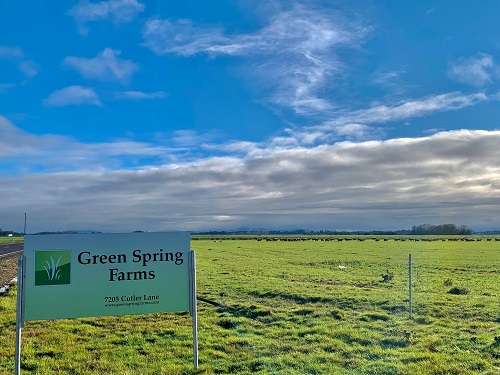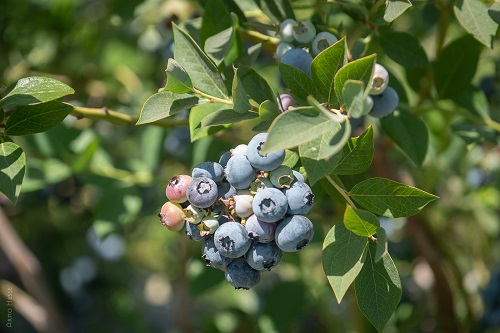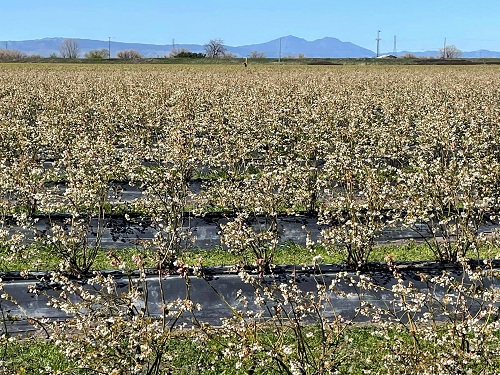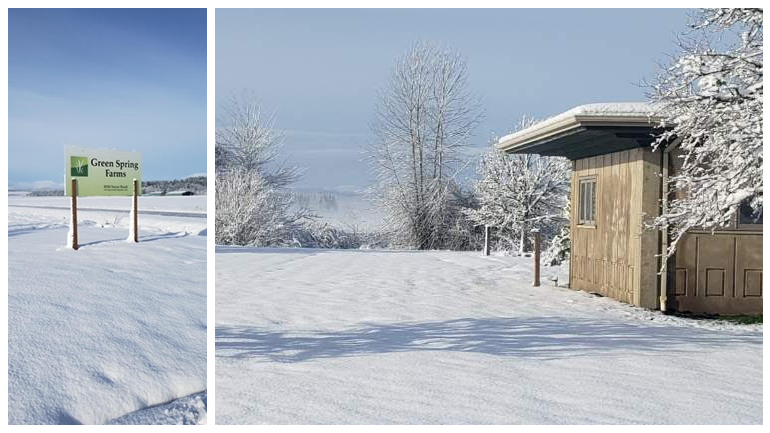Craig Wichner is founder and managing partner of Farmland LP, an investment fund company that generates returns by converting conventional farmland to organic and regenerative production. Founded in 2009, Farmland LP is a Certified B Corporation that currently manages more than $175 million in assets and over 15,000 acres of farmland in California, Washington, and Oregon. Craig joined OPN for a conversation about Farmland’s mission, its process of buying and converting land, his thoughts on Regenerative Organic Certified (ROC), and more.
Craig Wichner, Founder and Managing Partner, Farmland LP
Can you give us some brief background about yourself and describe what led you to found Farmland LP?
My background is in science, real estate, and finance. In 2008, with the birth of my daughter, I realized we’re not leaving the planet in great shape for her generation. I began to look at farmland with fresh eyes and soon realized our agriculture system is broken. Growing commodity corn year after year with ever-greater amounts of fertilizer and pesticides is destroying the land and our health. I was determined to find a better way and believed that organic, regenerative agriculture could be both sustainable and more profitable. This led me to start Farmland LP.
What is Farmland’s mission?
Our mission is to demonstrate that organic and regenerative agriculture is scalable, more profitable than commodity agriculture, and maximizes returns for investors.
Why is organic ag important to you?
Organic agriculture is really the only way we can grow healthy food people need in a way that the land can support over the long term.

Is it true that Farmland LP is one of the 15 largest farmland managers in the US—and the largest one that’s focused on organic farmland?
Yes. Most larger managers focus on commodity crops or conventional agriculture. What we do requires special expertise, and we’re grateful to the investors who are willing to give up a little bit of early cash flow and help us take land through the three-year organic conversion process. As we’ve demonstrated, it’s a good bet—our first fund has delivered annualized returns of about 9.25 percent (with only one-third leverage).
“Our mission is to demonstrate that organic and regenerative agriculture is scalable, more profitable than commodity agriculture, and maximizes returns for investors.” -Craig Wichner

Farmland LP's subsidiary Green Spring Farms in Monmouth, OR
Can you describe Farmland’s process of deciding what land to buy and then converting it to organic?
We start with a very macro view, looking for that magical combination of what we call sunshine, dirt, and water—meaning a great growing climate, high-quality soils, and both physical access to water and legal ownership over water. Part of this is informed by our understanding of climate change and what the planet may look like in 2050 and 2100. When you look at the climate change models through the lens of agronomy, you can see impacts not only over decades, such as drought, but also changes within each year, such as how some areas will have too much late-season moisture during harvest. So for the fund, we asked ourselves: In 2050 or 2100, where are we going to wish we had bought farmland in 2010 and 2020? A key result of this is our buying farmland with great water rights and a stable water supply for the rest of the century.
After we purchase a piece of land, we do a detailed analysis of it—the soil health, water quality, and overall climate conditions—and map out a 10-year crop plan for each field. Some of the land might be ideal for an organic vegetable crop rotation, while other acres might be ideal for various permanent crops like organic blueberries.
“Organic agriculture is really the only way we can grow healthy food people need in a way that the land can support over the long term.” -Craig Wichner

Farmland LP's organic blueberries
On your website, it says that Farmland “actively manages” its properties. Can you describe what that entails?
A key part of our strategy is buying at least $50 million of farmland in one tight area so we can have onsite farm managers, just like you would have an onsite manager for a 400-unit apartment complex or a large office building. After we buy the farmland, we add value by doing things like converting it to certified organic, implementing regenerative farming practices, and determining what the ideal higher-value crop rotations are over a 10-year period. Then we either farm the land ourselves or lease it to farmers who agree to maintain this way of farming.
Today, we have 45 people in farm management, including three site managers in Oregon, Washington, and California, plus additional crop managers and farm employees. Whether we lease the land out or farm it ourselves, by switching from commodity corn to growing different kinds of crops that generate more income, we can significantly increase the value of that land and the cash flow it produces. Our farm management team makes all that possible.

Blueberry bloom on Farmland LP acreage in Northern California
What organic produce crops are grown on Farmland’s acreage?
We grow about 40 different crops on our land, and our organic produce crops include tomatoes, blueberries, green beans, butternut squash, sweet corn, and more.
“Whether we lease the land out or farm it ourselves, by switching from commodity corn to growing different kinds of crops that generate more income, we can significantly increase the value of that land and the cash flow it produces.” -Craig Wichner
You praise Regenerative Organic Certified (ROC) on your blog. Why are you a fan of that certification?
We are proponents of verifiable, science-based standards for sustainable agriculture. We are supporters of ROC because it builds on the certified organic standards that have been in place for many years. We are very concerned about a different industry-backed effort to claim that chemical-based farming is “sustainable.” That is deeply misleading to consumers and investors.

Winter at Farmland's subsidiary Green Spring Farms in Monmouth, OR
What kind of accredited investors/institutions invest in your funds? And how does the investment work?
Investors in our funds include institutions, family offices, clients from numerous wealth management advisory firms, and accredited individual investors. Investors earn returns based on appreciation in the value of the farmland as well as cash flow.
Farmland just recently completed its second fund—Vital Farmland REIT LLC. Will you be creating more funds in the future?
Yes, we successfully raised and closed the second fund and are preparing for our third fund. Our first fund (Vital Farmland LP – Fund I) was very successful, and there is a lot of opportunity to expand our acreage and our positive impact. Investors are drawn to the organic ag sector, both for its financial returns and its benefits to the planet.






